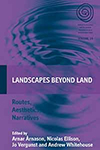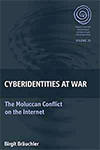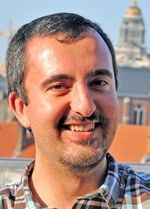Noel Salazar writes to the membership about the future of EASA: The job insecurity of anthropology students and recent graduates, the precarious state of some anthropology departments and the endangered funding of anthropological projects have made it necessary for EASA to start lobbying at the European level.

The new Executive Committee is keen to activate the presence of the association on Facebook and Twitter. We are already using these channels to promote association news and events, but wish more widely to use social media to further the reach of anthropological interests and agendas across and abroad Europe. You can follow EASA on Twitter and Facebook at: twitter.com/EASAinfo and www.facebook.com/EASAinfo

EASA seeks a new Book Series Editor to take over from James Carrier. The EASA Book Series will be in the vanguard of ethnographic or theoretical developments in specific areas of anthropological inquiry. It is expected that the Editor will identify and develop new and innovative directions together with a small editorial board and the publisher.

A virtual seminar pilot project which is a collaboration of four anthropological associations, EASA/ABA/AAA/CASCA (represented by Susana Narotzky, Bela Feldman-Bianco, Monica Heller, Marie-Nathalie LeBlanc). A multi-platform multi-lingual experiment. Date of live event: 15th October 2013

The series aims to publish works by members of the Association. If you are working on a monograph or edited collection, or considering working on one, you are encouraged to communicate with the series editor, James Carrier (jgc(at)jgcarrier.demon.co.uk), or consult the ‘book series’ part of the EASA web site.

The EASA Networks have expanded in number and become very active. This is good news for EASA as it proves the vitality of anthropologists and their engagement both with the discipline and with the pressing problems that beseech us. It is also an expression of growing interaction and collaboration among anthropologists in Europe and beyond.

At the beginning of the year EASA members voted for a new executive committee, and they met in Tallinn in February and allocated responsibilities. Noel Salazar was elected unanimously as President.
